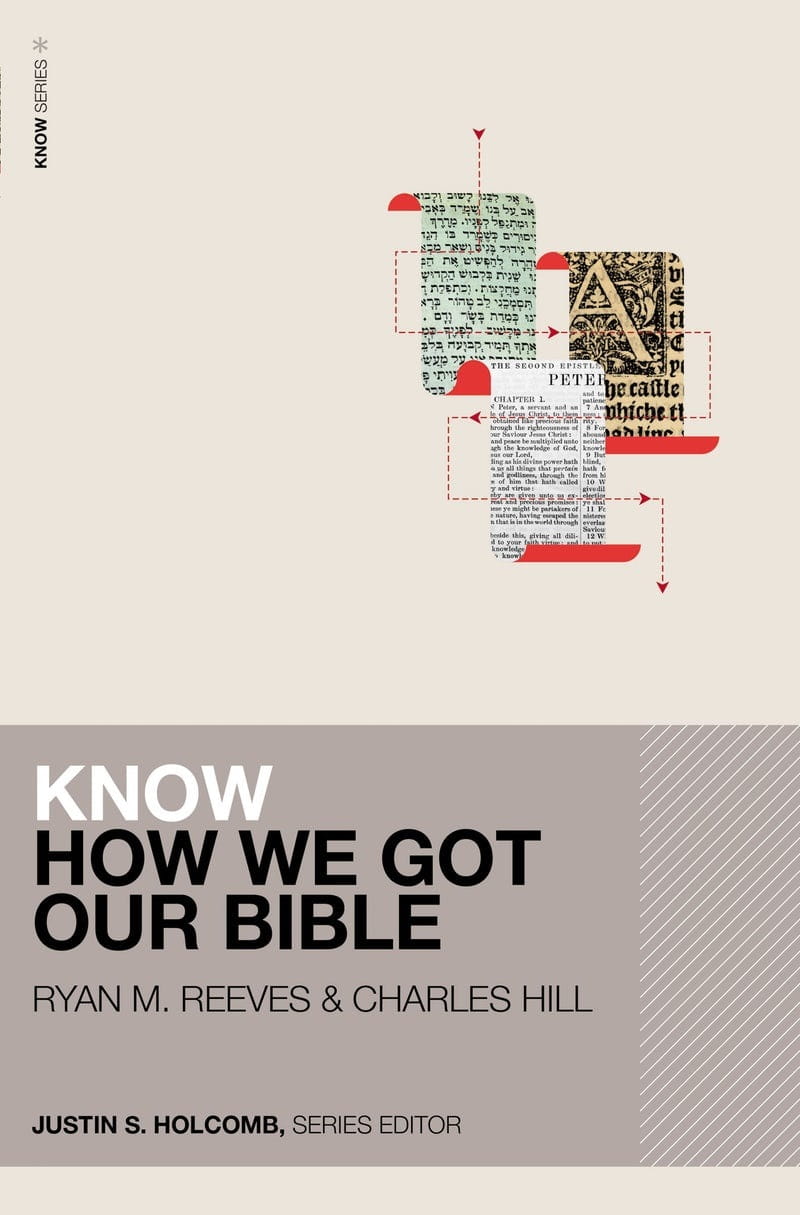How We Got the New Testament
Share

Given that many of the books of the New Testament are letters—written to specific churches—it may seem natural to conclude that the apostles did not realize these texts would be scriptural. Did they know these works were going to be collected and included in the Bible? Maybe they just wrote letters, and the early church created a Bible out of them.
To answer this question, we must understand the apostolic sense of calling that is found throughout the New Testament. Christ had called and sent his apostles to bear witness to his kingdom. Naturally, the apostles had a profound understanding of this authority. We can take Paul as an example. In 2 Corinthians 3:6, Paul refers to himself and, by extension, the other apostles as “ministers of a new covenant.” He writes that his ministry is inspired directly by the Spirit (vv. 6, 8) and that his calling is a “ministry of reconciliation” (2 Corinthians 5:18). This is important, because later in chapter 5 he refers to the “message of reconciliation” (v. 19) he and the other apostles have been entrusted with. He even declares that “Christ is speaking through me” (13:3) as he writes the letter. In other words, Paul does not consider his words to be merely a casual letter—or even just an important pastoral letter. The message he delivers, both in his preaching and in his writing, is authoritative in a way that is unique to those who are apostles.
The point to be grasped here is that the church has always understood that God’s speech to his people—his Word—is embodied in what may seem humdrum and ordinary, such as a letter from an apostle. The Bible is inspired, yet still reflects the uniqueness of the writers who were sent to proclaim the message. There is no sense that Paul or the other New Testament writers slip in and out of divine proclamation simply because the letters are the works of their own hand—even if their personality is displayed in their writings. God called people to deliver his Word, and those people have distinctive personalities, but their words carry a unique authority.
As we saw earlier in this chapter, the return of God’s Word was connected to the moment of redemption in Christ. It was assumed that once the Messiah came, God would again send divinely inspired leaders, just as he had in the Old Testament. The apostolic time, in other words, was expected to be only a small window, after which it would close. That window in time was when the apostles were living, when they were still on the initial mission of the church, and before their own disciples began to lead the church.
As long as there were living apostles, there was the official proclamation of God’s message to his people. No one else was empowered with this calling. This is why Paul tells Galatia that he was an apostle called directly by Christ (
Apostolic authority was therefore one of the most important issues for the early church. The reception of a book was always based largely on direct apostolic authority—or else the church affirmed the books were written by apostolic coworkers like Mark and Luke. This authority was something the church recognized as an internal witness in each New Testament book. The apostles made it clear their words were to be maintained by those who came after, since their words alone carried the authority of the Messiah.
For example, take the book of Hebrews—a book that some allege was received only because it was thought to be the work of Paul. But now that this authorship is rejected, should we reject Hebrews?
No. The church received Hebrews in the canon for the same reason it accepted Mark and Luke. Hebrews was written in the earliest years of the apostolic ministry—indeed, it was already being cited by 1 Clement in the first century. The author describes himself as a companion with Timothy on apostolic journeys (13:23), making him a co-laborer with the apostles, just as Mark and Luke were. It is true that the author of Hebrews is unknown, but the candidates for its authorship could only have been from the small number of those who served with the apostles. Its message is clearly based on the witness of the apostles, and so, like the rest of the New Testament books, it was received as apostolic.
Conclusion
The New Testament was an outburst of proclamation of God’s Word after the coming of Jesus. The apostles (or their companions) who wrote each book did not assume their writings were simply one of a dozen other alternative accounts of the message of God’s redemption. The apostles were sent directly by Christ and inspired by the Holy Spirit, and their message held a unique authority over the church—in the same way the prophets and other Old Testament writers wrote God’s word for Israel.

Ryan M. Reeves (PhD, Cambridge) is Associate Professor of Historical Theology at Gordon-Conwell Theological Seminary and Dean of the seminary’s Jacksonville campus. Also a visiting lecturer at Reformed Theological Seminary, Reeves has written English Evangelicals and Tudor Obedience and co-written The Story of Creeds and Councils (Baker, 2019). He hosts the Historical Theology for Everyone blog at The Gospel Coalition.
Charles E. Hill (PhD, Cambridge) is John R. Richardson Professor of New Testament and Early Christianity at Reformed Theological Seminary in Orlando and author of several books, including Who Chose the Gospels?: Probing the Great Gospel Conspiracy (Oxford, 2010).
Photo Courtesy: Thinkstock